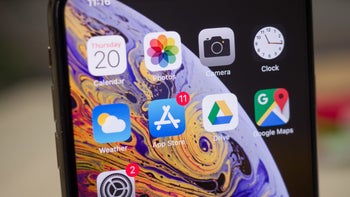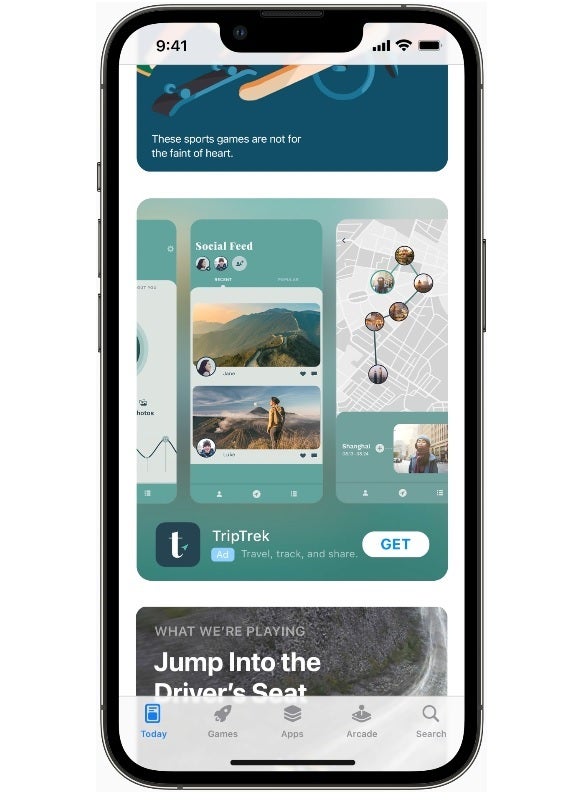Starting this coming Tuesday, you can expect to see more ads in the Apple App Store

Starting this coming Tuesday, October 25th, Apple will be adding ads related to apps in the App Store's Today tab. These ads also will surface in the section titled "You Might Also Like" which shows a list of a couple of apps that Apple recommends based on the app that you are thinking of installing now. These ads will have a blue background and an "Ad" icon.
App Store ads will be seen everywhere except China
App Store ads will be seen in every country except for one: China. As noted by MacRumors, this is the first time that Apple is allowing ads to be placed in the Today tab. And by allowing developers to promote their apps in the "You Might Also Like" section, these developers will be looking to gain traction for their apps by piggybacking on apps created by other developers. After all, the "You Might Also Like" section appears at the bottom of individual app listings in the App Store.

Example of an ad in the App Store Today tab
A page on the Apple website called Apple Search Ads talks directly to these iOS app developers. "With a Today tab ad, your app can appear prominently on the front page of the App Store — making it some of the first content users see when they begin their App Store visit," says the company. "The prominence of this placement makes it a good option to drive awareness of your app, especially for new content launches, special events, and seasonal promotions. Note that Today tab ads aren’t currently available on the App Store in mainland China."
Florian Mueller, founder of the FOSS Patents blog, has an interesting take on this. Not only does he write in a tweet that "It's another means of increasing the effective app tax rate," but he also says that this forces developers to buy ads on their own app pages. Why? According to Mueller, this is done to prevent competing apps from advertising in an effort to lure potential customers away.
Previously, Apple only allowed App Store ads on keyword-based search results and in the "Suggested" section of the App Store Search tab. Apple first disclosed its game plan to expand App Store ads in late July/Early August. In August, Bloomberg's Mark Gurman said that Apple wants to triple its ad revenue to at least $10 billion per year and is considering other apps besides the App Store to do this with. Such titles include Apple Maps which will show search result ads next year according to Gurman.
Last year it was noted that Apple's App Tracking Transparency feature blocked app and website trackers from following iPhone users around. This prevented them from receiving customized ads. On the other hand, Apple's Search Ads often serve up customized ads but not from using personal data. For example, if you search in the App Store for Snapchat, you might see an ad surface for TikTok. Apple is "kinda sorta" doing the same thing that other apps do, but by using keywords in a search request instead of tracking users.
Apple's App Tracking Transparency costs Zuckerberg $70 billion of his personal fortune
One could make the case that the launch last year of App Tracking Transparency (ATT) actually helped Apple build its nascent advertising business. With ATT, iPhone users could respond to a notification that asks whether they would allow a certain app to track them around the internet, or whether they request that the app not track them.
If you select the latter, Apple explains what happens next: "the app developer can’t access the system advertising identifier (IDFA), which is used to track. The app is also not permitted to track your activity using other information that identifies you or your device, like your email address."
Apple's feature surely did damage to Facebook parent Meta which reportedly took a $10 billion hit to revenue since it could not collect the personal data needed to help it serve relevant ads to iPhone users. Meta CEO Mark Zuckerberg vociferously raised his objections about ATT, and the feature might have cost him $70 billion which is how much his personal holdings of Meta shares declined in dollar terms over the past year.













Things that are NOT allowed: